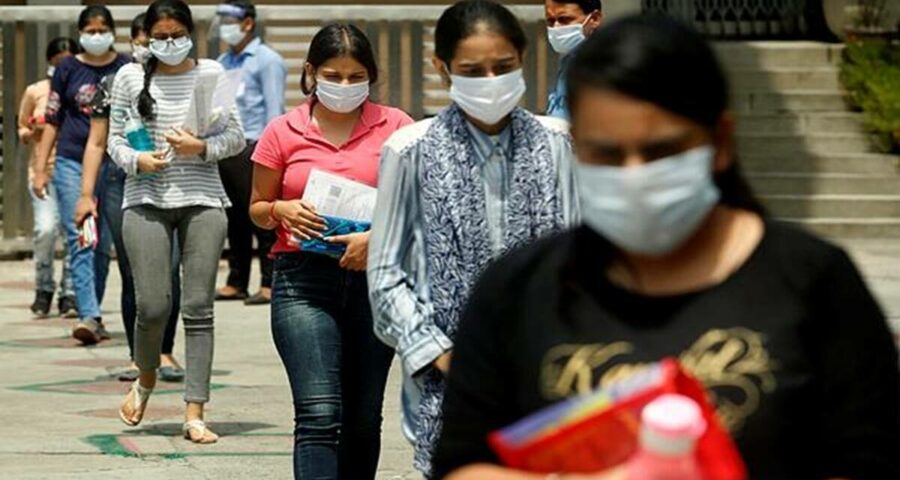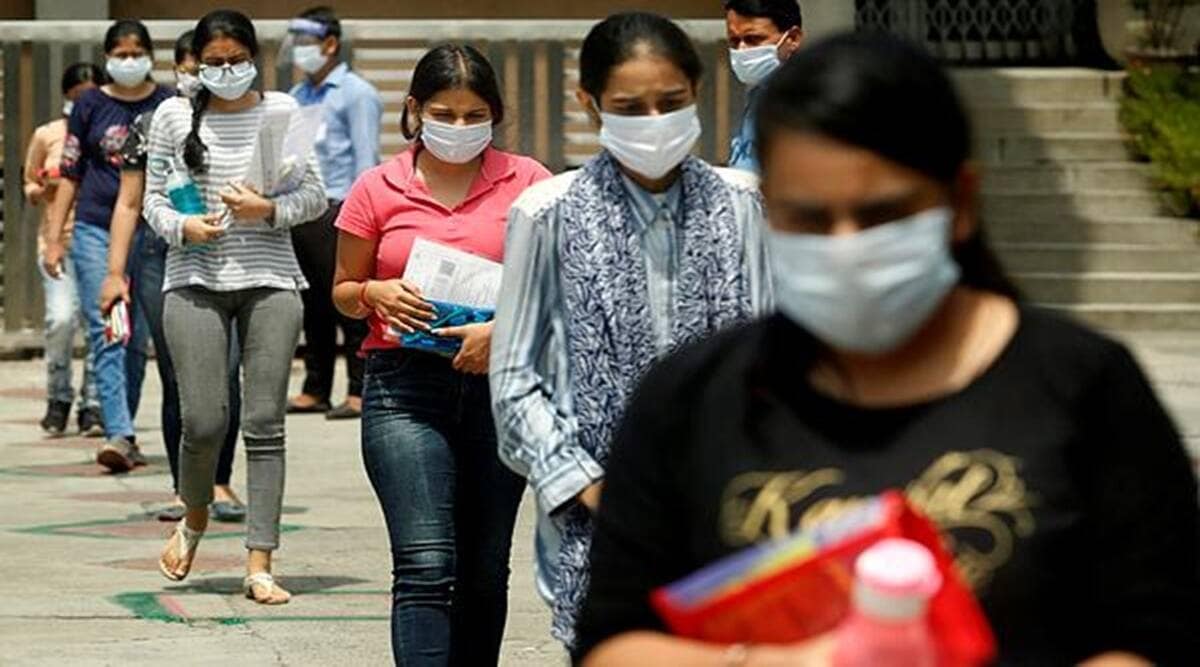Owing to the lockdowns in various cities in India, the Visa Application Centres’ (VACs) operations have also been impacted, causing visa approval delays for multiple students.
The second wave of coronavirus has further impacted higher education in the country. In the past two weeks, central and state board exams have either been cancelled or postponed, with several entrance exams for undergraduate (UG) and postgraduate (PG) admissions getting deferred owing to the increasing number of COVID-19 cases.
This year, the University of Delhi (DU) had plans of providing 50 per cent weightage to class 12 marks and 50 per cent to Central Universities Common Entrance Test (CUCET) score. But, with board exams deferred, the varsity is yet to take a final call on that.
“Though the fate of board exams is now uncertain, we have not yet decided if we will go ahead with only the entrance exam. We may provide 100% weightage to CUCET score but DU admissions will continue to be merit-based; however, the criteria may get changed based on CBSE’s decision on board exams,” PC Joshi, pro-VC, DU, told indianexpress.com.
Sonipat-based Rishihood University has brought in a change in its admission policy amid COVID-19. The university offers UG courses in design, entrepreneurship, education, psychology, and allied healthcare. The curriculum is multidisciplinary and around 30% of the courses are common across programmes.
“The board exams have been indefinitely postponed. We have removed the need to submit board exam scores for admissions. We are shortlisting the students based on class 10 scores and interviews. Like last year, this year’s academic span will be shorter. Students may be able to start their first year in October or November. This will impact the rest of their academic timelines,” said Sahil Agarwal, co-founder and CEO, Rishihood University.
Read | With Class 12 boards deferred, students worried about college admissions
As a consequence of the postponement of JEE Main (April) 2021, admissions to IIITs, NITs and Centrally Funded Technical Institutes (CFTIs) have also been put on hold.
“We are hopeful that the JEE Main sessions will be conducted as and when the situation is conducive. The admission process is expected to conclude by July,” said NV Ramana Rao, director, NIT Warangal.
Two sessions of JEE Main 2021 in February and March were already conducted, but the admission process cannot begin until all four sessions – including April and May – are conducted and normalised ranks are released. Similarly, IITs cannot admit students without JEE Advanced 2021 score, which is also dependent on the JEE Main 2021.
“Around 300 colleges affiliated to Bangalore University conduct merit-based admissions every year. As board exams have been deferred, the admission process is completely at a halt. Besides, we also have postponed the semester exams for all UG and PG courses amid rising COVID-19 cases. Until first-year students get promoted to the successive year, with or without exams, we cannot begin the academic session for fresh first-year students,” KR Venugopal, vice chancellor, Bangalore University.
Pursuing a foreign degree amid coronavirus outbreak
While the situation is worsening in India, foreign universities are looking forward to the September 2021 intake. Universities are offering flexibilities to students at all stages of the student lifecycle. Now, they have a more extended deadline to submit applications along with a longer window to accept offers of admission and pay the tuition fee. Because of lockdowns in various cities in India, the Visa Application Centres’ (VACs) operations have also been impacted, causing visa approval delays for multiple students.
“The western hemisphere is divided into the green and red zone. The green zone consists of countries such as Germany, New Zealand, Canada and the UK, who have very well-handled COVID-19. Universities in the UK and Canada are offering conditional admission offers to foreign students. Most students had deferred their admission offers in 2020 and will be joining this year, which will increase the competition. Earlier, students used to apply for 3-4 courses, but now universities are asking them to identify their most preferred course while applying,” said Akshay Chaturvedi, founder and CEO, Leverage Edu.
Chaturvedi adds that countries in the red zone such as the US have given a chance to the non-traditional study abroad choices as students are opting for a foreign degree with minimum expenditure. Universities will try to make the upcoming Spring intake as big as the Fall 2021 intake. The UK government has also promised vaccination for all international students through National Health Service (NHS) in the country.
Also Read | Covid effect: Admission in foreign universities likely to be tough in 2021
“As for the US, most of the universities are giving application fee waivers and waived off the GRE/ GMAT requirements for masters and SAT/ ACT for undergraduate. Some universities are giving offers to students without the last semester mark sheets also. The UK higher education sector is offering additional scholarships and bursaries,” said Piyush Kumar, Regional Director (South Asia), IDP Education.
Last year, the Canadian government introduced a two-stage visa approval process. Students who cleared the first stage received an Approval in Principle (AIP), which gave them the confidence to accept their offers of admission by paying the tuition fee. Also, even if students attend online classes, that time will be counted as time spent in Canada, enabling them to allow for a work permit after completing their programs. Currently, students have started to get their visa, which means that they can now travel to Canada to attend a face-to-face class.
This year, the University of California and California State University are also planning to make COVID-19 vaccinations mandatory for all students, faculty and staff coming to the campus in Fall 2021. Other schools in the US are likely to follow suit.
Source: Read Full Article


